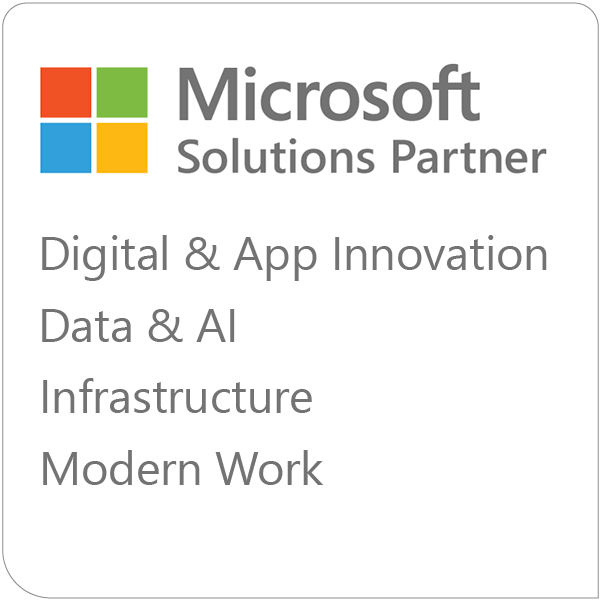Developers working with C++ depend on a high-quality Integrated Development Environment (IDE) to make the coding process as streamlined as possible. There are many different IDEs designed for C++, so knowing which one is the best can be challenging for newer developers.
There are many different things to look for in a high-quality C++ IDE. The ability to manage complex code, debugging, and refactoring are some features that every good C++ IDE should have. Developers on the lookout for an IDE for robust code handling or debugging should use this guide to ensure that they are using the best IDE for C++ possible.
What To Look for When Choosing a C++ IDE
Each Integrated Development Environment is designed as a software suite with all the tools needed for software development. Some IDEs work better with specific code languages, but most can be used with many different languages.
Common tools included in IDEs for C++ include an advanced code editor, a debugger, and an easy-to-use interface. More advanced IDEs will include code completion capabilities and version control integration. Some of the most important things to look for in a good C++ IDE have been detailed in the sections below.
It is important to consider these factors before choosing an IDE to ensure that it is designed for easy use with C++. Some IDEs are designed to work well with only certain coding languages, so choosing the wrong one may make the coding process more difficult for C++ developers.
Build System Integration and Compiler
Choosing a C++ IDE with a direction integration with many different compilers and building systems is vital to the development process. With integrations to compilers like GCC, Clang, and MSVC, code can be compiled seamlessly and managed directly inside of the IDE using build process integrations like CMake or Makefiles. Luckily, this is a common feature of most C++ IDEs, supporting both standard and custom user configurations.
Real-Time Static Analysis and Error Checking
Most IDEs come with some form of syntax highlighting features, but a good C++ IDE should perform error checking and static analysis in real-time. This will help developers catch any errors as the code is being written, saving time when proofing once the code is completed. The IDE should be able to check for memory leaks, bugs, and other concurrency issues found in the code to ensure it is high-quality and functions properly.
Bundled Refactoring Tools
An IDE with advanced refactoring features is vital to maintaining and improving complex codebases. It should be easy to rename symbols and extract methods or classes while maintaining the integrity of the code. IDEs that can handle automated code transformation should also be prioritized for C++ developers.
Profiling and Debugging Tools
The best IDEs for C++ include integrated tools that can manage both local and remote debugging. It should also include the ability to visualize data structures and integrate them with any external memory checkers and profilers that may be required. IDE profiling tools are extremely important for identifying performance issues and optimizing code.
Integration for Unit Testing
Unit testing frameworks like Google Test and Catch2 should be integrated into the IDE to ensure developers can write and run debug tests inside of the IDE. For C++, test-driven development is extremely common, so an IDE that supports TDD can make the code-testing process much easier.
Support for Cross-Language Development
If the project requires the use of coding languages other than C++, finding an IDE that supports cross-language programming will be necessary. It is common for C++ coding projects to utilize other coding languages like Java or Python. Many IDEs support multiple languages that should be considered to ensure compatibility in case another language other than C++ is required.
Choosing The Right C++ IDE Checklist
The table below contains many of the biggest factors to consider when choosing an IDE for C++ development. Making sure the IDE chosen meets all of these requirements will ensure a smooth coding process.
| Area | Description |
| Compatibility | Ensure that the IDE is supported on the operating system where the coding will be completed. |
| Project | Before choosing an IDE, take note of the project size. Some IDEs are better suited for smaller projects while others can handle larger coding projects more efficiently. |
| Ease of Use | Seek out IDEs with lower learning curves that are user-friendly and easy to use. More complex IDEs may be harder to use effectively. |
| Performance | Make sure the IDE performs well with the current OS and hardware in use during the coding process. |
| Features | The IDE should include features like code completion, debugging tools, and integrated version control. |
| Languages | Be on the lookout for IDEs that support multiple coding languages in case a language besides C++ is necessary for the project. |
| Customization | A customizable IDE can streamline the coding process. |
| Support | An IDE with good support and community will be helpful in case any issues arise during the coding process. |
| Cost | Determine if a free IDE is sufficient or if upgrading to a paid plan is necessary for the project. |
| Integrations | Check that the IDE integrates well with any other software or tools that are used during the coding process. |
| Extensibility | Check for plugin compatibility. |
Top 10 Best IDE for C++ 2024
1. Visual Studio Code (VS Code)
Visual Studio Code (VS Code) is one of the most widely used IDEs for C++. Developed and published by Microsoft, VS Code is a free and open-source code editor with powerful features. Compatible with Windows, Mac, and Linux, VS Code features C/C++ extension integration for comprehensive code development.
VS Code is extremely popular with C++ developers due to its tight integration with GIT version control systems and its compatibility with the three big operations systems. It is a cross-platform, multi-language development environment, meaning other languages like Java and Python are supported.
VS Code comes equipped with powerful coding and debugging tools with one of the best compilers for C++ on the market. In addition to being highly portable, VS Code allows for the creation of HTML, CSS, or XML style sheets.
Pros
- Flexible, multi-language suite
- Useable on Windows, Linux, and Mac
- Powerful coding and debugging features
- Great support and community
Cons
- Resource intensive
- Higher learning curve
- Complex extensions may complicate setup and maintenance
2. Eclipse
Eclipse is another popular C++ IDE that is easy to use for new programmers. As an open-source IDE, it is compatible with Windows, Mac, and Linux. It includes all the development tools needed for C++ coding including compilers, debugging tools, and auto-completion. It is one of the easiest IDEs to use for C++, making it appropriate for those new to C++ or coding in general.
Pros
- Easy to use for beginners
- Available on Windows, Mac, and Linux
- Full suite of coding tools for C++
Cons
- Advanced features may be harder to use for beginners
- Resource intensive
3. NetBeans
NetBeans is a free and open-source IDE that supports multiple coding languages. Available on Windows, Mac, and Linux, NetBeans features a variety of powerful tools for C++ coding. These include bracket matching, refactoring, and syntax highlighting.
NetBeans features multi-platform support giving developers the ability to code faster and use remote host development tools. It has a user-friendly interface that is easy to navigate as well as good community and technical support.
Pros
- Multi-platform compatibility
- Multi-language IDE
- Full suite of developer tools including coding, debugging, and testing.
- Strong and active community
Cons
- Slow on older hardware
- Higher learning curve
- Resource heavy
4. Atom
Atom is an extremely versatile IDE that supports multi-language coding. It is open source and available on Windows, Mac, and Linux. It can be deeply customized without the need for config file modifications and features a full suite of development tools like auto-completion, find-and-replace, and file browsing.
Being compatible with every OS gives coders a big advantage when working across multiple systems. In addition, many different plugins and extensions are available for a more customizable coding experience. It can even be used for workspace splitting, making code comparison much easier.
Pros
- Customizable
- Cross-platform compatibility
- Integrated package manager
- Easy-to-use interface
Cons
- Slow when handling larger projects
- Resource heavy
- Customization has higher learning curve
5. Dev C++
Dev C++ is another free, open-source IDE that is tailored specifically for those new to coding or C++. With GCC-based compilers, Dev C++ is compatible with Windows and Mac. It features tools for profiling, debugging, and even syntax highlighting.
Installing add-on libraries is simple and some project templates are included for quickly beginning new projects. Dev C++ does support other languages but works best with C++. When using Dev C++ to code with C++, users may edit and compile resource files directly inside of the IDE.
Pros
- Great for beginners
- Full suite of development tools tailored for C++
- Easy extension and library addition
Cons
- Only compatible with Windows and Mac
- Lacks some of the more advanced development features
- Newer GCC versions or more advanced C++ features may cause issues.
6. CLion
CLion is an IDE that has been designed specifically with C and C++ in mind. It is a great option for larger projects with more intricate design elements required. CLion is not a free software and requires a paid plan to use.
Available on Windows, Mac, and Linux, CLion comes with all of the tools needed for C++ coding. This includes debugging, refactoring, and code analysis tools. This is one of the more resource intensive IDEs on this list, so it may be difficult to run on lower end machines.
CLion comes integrated with the CMake build system and supports integration with CVS and TFS. This helps provide intelligent code analysis and allows unit testing the source code.
Pros
- Advanced code analysis
- Cross-platform
- Version control integration and CMake build system
- Customizable interface
Cons
- Not a free software
- Extremely resource intensive
- Steep learning curve
7. QTCreator
QTCreator is an IDE that offers both free and paid plans. This open-source tool is compatible with Windows, Linux, and macOS, allowing for the development of mobile applications as well. Users of QTCreator on Windows can easily integrate the Microsoft Console Debugger using MinGW. Linux users will be utilizing the GNU Compiler.
With integrated version control and advanced code editing features, UI development and machine-to-machine communication are possible.
Pros
- Cross-platform
- Comprehensive libraries
- Advanced editing tools
Cons
- Free plan lacks features
- Steep learning curve
- Performance issues on lower-end hardware
8. Xcode
Xcode is an IDE designed and published by Apple. It is a free tool that is specifically designed for developing on devices running Apple OS. This includes macOS and iOS. It is arguably the most popular tool for developing C++ on Apple devices.
Xcode has a few standout features including syntax highlighting and an integrated debugger. The code completion features make the coding process faster and a drag-and-drop UI ensures it is easy to use.
It features integrated version control and even a simulator for device testing and app evaluation. For Apple OS developers, Xcode is definitely the best choice for C++ programming.
Pros
- Optimized for Apple OS devices
- Free software
- Integration with the Apple ecosystem
Cons
- Not highly customizable
- Can be slow when working on larger projects
- Only efficient when developing on Apple ecosystems.
- High learning curve
- Mac only
9. AWS Cloud9
AWS Cloud9 is a cloud-based IDE that allows for coding remotely using an internet connection. As a web-based IDE, it comes equipped with all the tools needed for C++ development.
Featuring direction integration with the AWS ecosystem, developing with Lambda and S3 is streamlined. Cloud-based IDEs also allow for multiple developers to work on the same project simultaneously.
Cloud management using AWS Cloud9 is simple as it offers a pre-configured terminal with AWS CLI.
Pros
- AWS integration
- Easy collaboration with remote teams
- Built-in AWS CLI terminal
- No local setup required
Cons
- Requires internet connection
- High learning curve
- Less efficient on slower internet connections
- Expensive
10. CodeLite
CodeLite is another open-source IDE that works well with C++ development. Featuring Rapid Application Development tools, CodeLite can be used to create widget-based applications easily.
Popular for being user-friendly and lightweight, CodeLite excels at testing and debugging. It is available on Windows, Mac, and Linux with an easy installation process. Code completion is handled using a Clang-based engine.
CodeLite makes a point to simplify coding for beginners and is tailored for C and C++ programming.
Pros
- Not resource intensive
- Cross-platform
- Full suite of C++ coding tools
Cons
- High learning curve
- Less efficient when using languages other than C/C++
- Difficulty when integrating with external tools and libraries
Which C++ IDE Is Right for You?
Choosing the best IDE comes down to personal preference but knowing which features you are looking for is a good first step. Choosing an IDE that is not compatible with your workflow can make the coding process more difficult. This guide has provided everything you need to know to ensure that you make an informed decision when choosing an IDE for your next C++ project.






